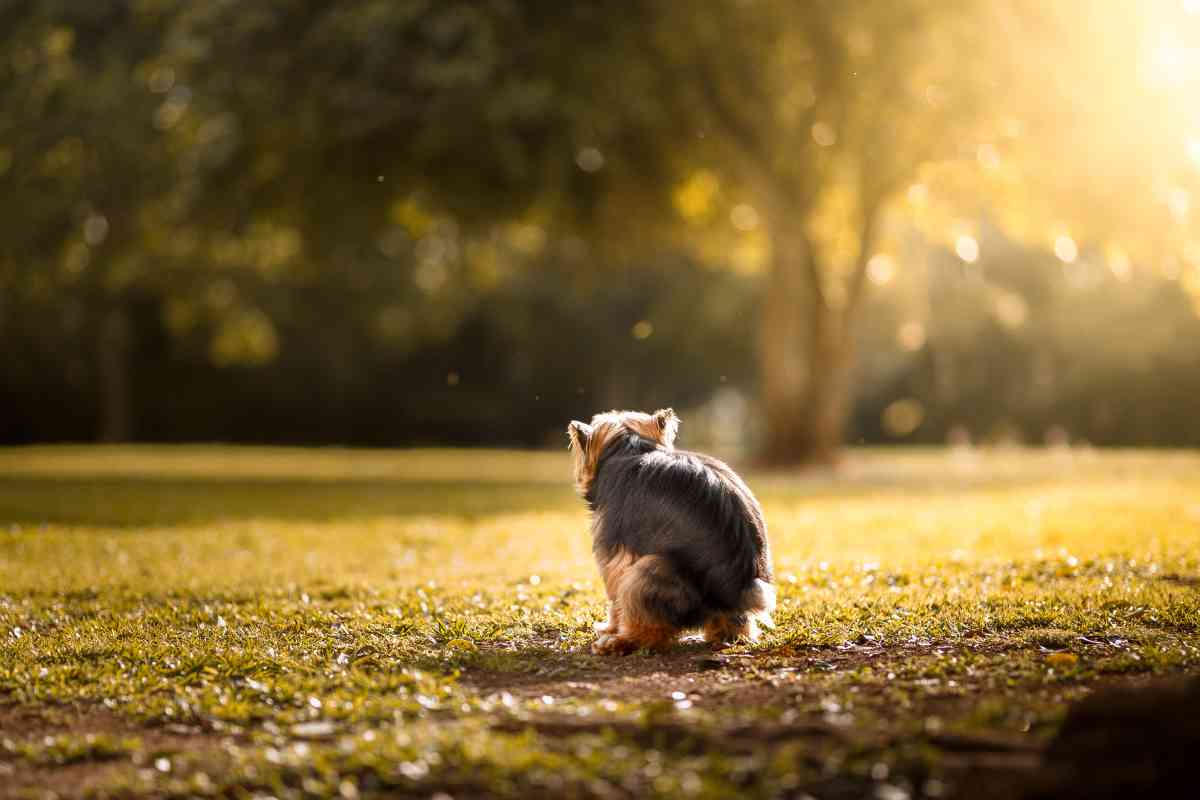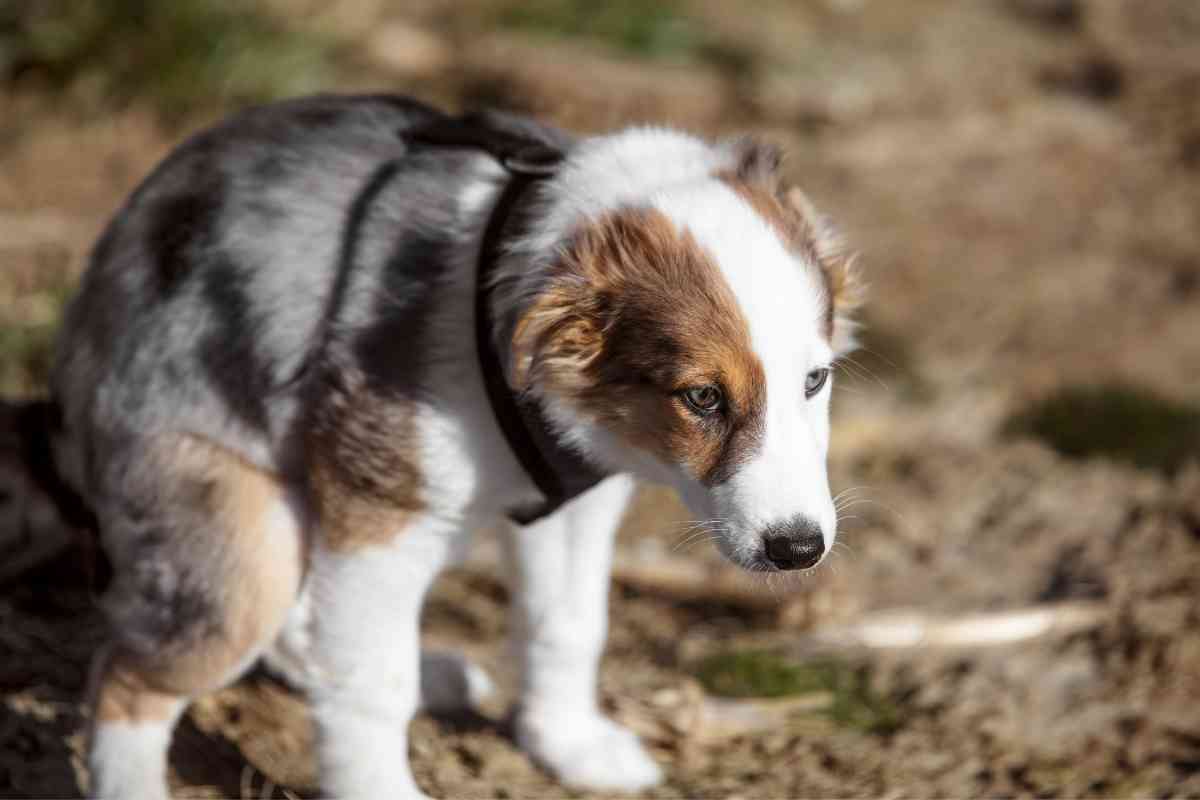How Long Puppy Poop Should Be Soft (Diarrhea, Loose Stool, Gut Health)
A dog parent is always observant of changes in their puppy’s stool to gauge if there’s cause for alarm. So, is puppy poop supposed to be soft?

Are puppies supposed to have soft poop?
Puppy poop can be soft, especially after they are born. As they grow up, their poops start becoming firmer. Even for healthy pups, soft stools are usual. However, if the puppy generally has solid poop and suddenly starts getting soft stools, keep an eye on them for any changes.
We asked breeders and experts in the dog field what the consistency of a puppy’s stool should be. We also sought to find out the main causes of why puppies have loose stools and how gut health is related to your dog’s poop consistency.
We have outlined some of the things we learned from these experts regarding the topic and others relating to it.
Common Reason that Might Lead to Your Puppy Having Loose Stools
There are several reasons why your puppy’s stools might be loose. If you notice a change in your dog’s stool, visit your vet as soon as possible to prevent the condition from worsening.
Here are some of the most common:
Drastic Change in Diet
A change in diet can cause your pup to have loose stool. This is especially the case when the change is drastic. When changing your dog’s diet, it is advised that you do so at a very gradual pace to give their stomach the time to adapt.
This is the main reason why when you adopt a puppy, you will notice the breeder will give you a small portion of the exact type of food the puppy was eating. This will allow you to continue feeding the dog what they are used to and gradually change their diet.
Whenever changing the puppy’s diet, it is recommended that you give them 90% of the food they are used to and just 10% of the new food for 2 days.
Continue doing this every two days while decreasing the percentage of the food they are used to by 10 and increasing new food by 10%. If done correctly, your puppy should be 100% on the new diet by day 20.
Eating Different Things

When puppies are young, they tend to nibble, lick, chew and eat different things they should not. For example, these things might include chewing shoes or cushions, eating things they find outside the house, and many others.
All these things can upset their stomachs and cause loose stool or diarrhea.
It is important to ensure that when your pup is outside or inside the house, they do not eat anything that might cause them stomach issues. A good way to avoid this is to get them to chew toys to play with.
Stomach Sensitivity
Certain types of food may be difficult for some pups to digest. Many factors, such as the ingredients utilized and production techniques, might contribute to this. Also, even the container in which the food is kept.
Soft poops might also be caused by the food you feed your dog. If parents are experiencing diet-related poop problems with their pups, we suggest they consider a fresh meal service for their dog.
There are many fresh dog meal delivery services out there. Ensure you choose one that has all the dietary requirements your puppy needs.
Exciting or Stressful Experiences
Your puppy may experience diarrhea after a spell of excitement, such as playing, on public trips, or when a friend visits. You may notice your puppy’s feces softening or changing soon after a distressing or exciting experience.
This might happen even after they reach adulthood. This is a natural alteration that will resolve itself within a day.
If the situation does not return to normal within 24 hours, we advise you to take your puppy to the vet.
Vaccination or Visits to the Vet
Your pet may have some diarrhea after seeing the veterinarian. This might be triggered by the stress of traveling to a new location.
In addition, veterinarians check rectal temperatures, which can sometimes stimulate the puppy to defecate immediately after that.
The Parvovirus
Parvovirus is a potentially fatal virus that is found in unvaccinated pups. These pups appear sluggish, have blood in their loose stool, are vomiting, or refuse to eat.
If your puppy exhibits any of these indicators, you should take them to the vet immediately.
The sooner they begin treatment, the faster your puppy will recover and the better the chance of a good prognosis.
Parasites and Bacterial Infections
It is a given that a stomach bug can cause watery stools. It may be any color, but the most common description is that it is like switching on a faucet! Bacteria and parasites can bring on infections, and your puppy may have symptoms such as tiredness, vomiting, or stomach discomfort.
In certain situations, flecks of blood may be seen in the feces owing to gastrointestinal inflammation.
If it is not very serious, a puppy fast followed by feeding your dog a bland diet should resolve the issues in a few days. However, if you do not notice any improvements or clinical signs, take your dog to the vet.
Steps to Improve Your Puppy’s Gut Health
One of the best issues to ensure your pup does not get loose stool issues is to take better care of their gut health. Gut and bowel health is something that every pet parent needs to be keen about if they want their puppy to have a happy and healthy life
Here are a few tips to help you do this:
- Feed your puppy whole and unprocessed foods with rich nutrients to help their gut health. You can feed them balanced and freshly cooked home meals. Always ensure that you feed them the best quality foods of different varieties.
- If possible, try feeding your puppy raw foods; dogs fed raw food show the best microbiome results. These microorganisms are great for maintaining a healthy gut.
- Ensure you check and find out if your dog is sensitive to any food or if they are allergic. You can ask your vet to help you determine this and recommend the best solutions.
- Take your dog for vaccinations. The parvovirus can damage a young puppy’s gut and overall health. It can be easily avoided by taking your puppy for the vaccination.
- When switching your puppy’s diet, please do so gradually to give them time for their gut to get used to the new diet. In most cases, this period may last about 20 days, especially if the puppy is still young.
- If the diarrhea or loose stool does not get any better, visit your vet for further check up and treatment.
Key Takeaways
- It is normal for puppies to have a loose stool for a few weeks after birth. However, as they grow up, their stool should become firmer.
- Whenever you notice your puppy has a runny stool, give them 24 hours and observe if there are any changes. Normally, the situation will remedy itself within this timeframe. If not, take the dog to the vet.
- Whenever you notice any blood specks in your puppy’s stool, it may be a sign of something bad. As such, you should take them to see a vet. Seeing the vet is normal now and then, especially for young puppies and old dogs. So, do not be afraid to take your pup to the vet as often as you feel they should.
- Many things might cause your puppy to have loose stool. As a responsible pet parent, you should be observant so that you can catch any changes as and when they occur. This way, you can take appropriate action whenever needed to ensure your puppy has great gut health.
- Be careful about anything that might affect your dog’s gut health. Try to avoid as many of the foods that can affect your puppy.